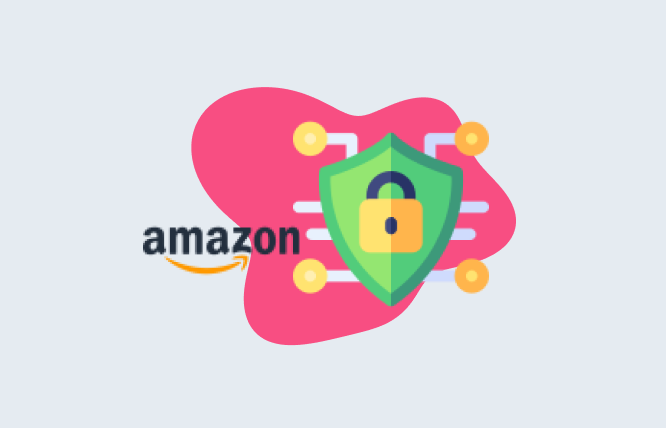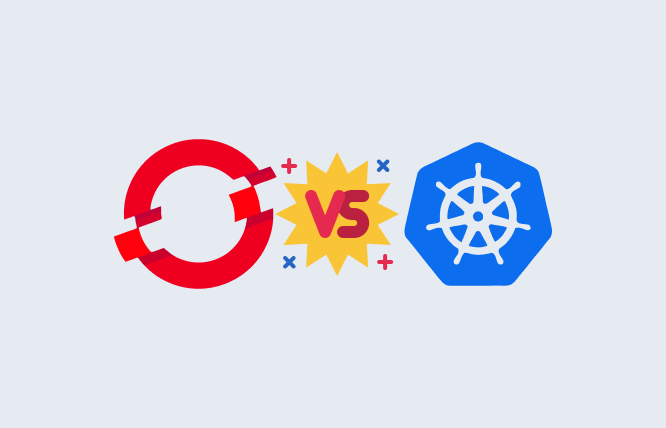Introduction
AWS is considered one of the top cloud environments for businesses. That being said, data breaches are a real threat in any cloud environment, and it is important to be prepared for any cyber-attacks. This article will discuss the AWS Security Best Practices you can employ to keep your AWS cloud environment secure.
Amazon web services or AWS is considered one of the leading cloud platforms, globally. Up until 2022, AWS had captured 33% of the global market. This is because of the growing demand of cloud computing in the rapidly expanding digital landscape.
While the cloud market is growing, so is the threat of security breaches. According to a study by IBM in their IBM Data breach report, 45% of data breaches happen in cloud environments with 80% of companies having experienced at least one breach in the last year.
These stats are alarming and while there is no way to completely eradicate the threat of breaches from cloud environments, businesses can work towards protecting their system. In this article we will discuss the importance of cloud security and the AWS security best practices that can help protect you from a breach and what an AWS professional services consultant can do for your business.
Importance of Cloud Security in The Current Digital Landscape
Data privacy is a fundamental right for both organisations and consumers alike. This is why it is vital for businesses to first understand the importance of cloud security and build towards protecting your system.
As more data is moving towards the cloud environment, whether private cloud or public cloud, IT professionals are concerned about the implications that it might have on safeguarding personal data. As cloud environments are easier to breach with sophisticated cybersecurity threats. This is why your need security measures in your cloud application development services.
Following are some of the important aspects of cloud security in the current digital era.
Data Protection
With the increasing volume of sensitive data being stored and processed, security measures are essential to protect against data breaches.
Compliance Requirements
Cloud security measures help organisations ensure compliance with regulations such as GDPR, HIPAA, PCI DSS, and more.
Business Continuity
Cloud security measures, including data encryption, redundancy, and disaster recovery capabilities, help ensure business continuity by minimising the risk of service interruptions and data loss due to security incidents or natural disasters.
Reputation Management
Implementing robust cloud security measures demonstrates a commitment to protecting customer data and can help maintain trust and credibility with customers and stakeholders.
Cost Savings
While investing in cloud security measures incurs upfront costs, it can ultimately result in significant cost savings by mitigating the financial impact of security breaches, regulatory fines, and legal liabilities associated with data breaches.
Collaboration and Remote Work
With the increasing trend toward remote work and collaboration, cloud security measures are essential for securing access to sensitive data and applications from anywhere.
AWS Security Best Practices to Protect Your Cloud Environment
There is no one correct way to protect your cloud services but there are certain practices that you can employ to improve your chances and steering clear from data breaches. Following are some of the practices you can use to improve your cloud security and enhance business management solutions.
Effective Identity and Access Management (IAM)
Managing user identities and access permissions is essential for AWS cloud security. With AWS IAM, organisations can define policies to control access to AWS resources securely. By implementing the principle of least privilege, organisations ensure that users have only the permissions necessary to perform their tasks, reducing the risk of unauthorised access and data breaches.
For instance, an organisation can define IAM policies that restrict access to sensitive data from employees under a specific grade with users-based roles.
Data Encryption
Data encryption is critical for protecting sensitive information stored in AWS environments. AWS Key Management Service (KMS) allows organisations to manage encryption keys, encrypting data at rest and in transit. By encrypting data, organisations can safeguard it from unauthorised access, ensuring confidentiality and compliance with data protection regulations.
Take for example, a business can encrypt Amazon S3 buckets containing sensitive files with server-side encryption using AWS KMS-managed keys.
Network Security with VPC and WAF
Properly configuring AWS Virtual Private Cloud (VPC) is essential for network security, allowing organisations to control traffic flow and isolate resources. Additionally, AWS Web Application Firewall (WAF) provides protection against web exploits and common threats, such as SQL injection and cross-site scripting (XSS) attacks. By implementing VPC and WAF, organisations enhance their defence against malicious activities targeting their applications and infrastructure.
Monitoring and Logging
Continuous monitoring and logging are crucial for detecting and responding to security incidents promptly. AWS CloudTrail captures API activity and resource changes, which allows organisations to track user actions and investigate security incidents. It provides real-time monitoring and alerts, allowing organisations to identify and mitigate potential security threats proactively.
Businesses that cater to a lot of sensitive data such as finance and healthcare can configure CloudWatch alarms to trigger notifications when specific thresholds are breached and using AWS CloudTrail to log API activity for auditing and compliance purposes.
Incident Response Planning
Having a well-defined incident response plan is essential for effective security incident management. Organisations need to develop and test their incident response procedures to ensure readiness for security incidents. Automation tools like AWS CloudFormation and AWS OpsWorks facilitate rapid incident response and recovery.
Businesses can conduct regular tabletop exercises to simulate security incidents and test the effectiveness of the response plan. This can be a great preparation in case an issue does arise.
Patch Management
Regular patch management is crucial for addressing security vulnerabilities and maintaining the integrity of AWS resources. Prioritisation of patching with AWS environment is essential to keep your cloud systems up to date and secure. AWS Systems Manager Patch Manager automates the patch management process, making it easier for organisations to maintain the security of their AWS infrastructure.
For example, businesses can use AWS Systems Manager to automate patching tasks across multiple instances keeping proper track of the patches.
Data Backup and Disaster Recovery
Implementing robust data backup and disaster recovery solutions is essential for data resilience and business continuity. AWS offers services like Amazon S3, Glacier, and AWS Backup for automated data backup and recovery, ensuring organisations can recover quickly from data loss or disasters.
Businesses in all industries need to keep a backup of their systems. With Amazon, you can create automated backup schedules and lifecycle policies to ensure data resilience and availability.
Compliance and Governance
Compliance with industry-specific regulations and standards is critical for organisations operating in regulated industries. AWS provides compliance offerings and guidelines to help organisations maintain compliance with data protection regulations and industry standards. Regular audits and assessments ensure alignment with internal policies and external regulations, helping organisations demonstrate their commitment to security and compliance.
Benefits of Cloud Environments
If you consider all the risks associated with cloud environments, why don’t organisations revert to traditional systems? The problem is there are too many benefits of AWS cloud for companies to go back to legacy systems. These benefits are as follows:
Lower Upfront Costs
Cloud environments eliminate the need for large upfront investments in hardware and infrastructure, allowing organisations to pay only for the resources they use, reducing initial expenses.
Reduced Ongoing Operational Expenses
By outsourcing infrastructure management to cloud providers, organisations can reduce operational costs associated with maintenance, upgrades, and support, freeing up resources for other initiatives.
Increased Reliability
Cloud environments offer built-in redundancy and failover mechanisms, ensuring high availability and minimising downtime, which enhances reliability for critical applications and services.
Centralised Security
Cloud providers implement robust security measures and compliance standards, offering centralised security controls and monitoring tools to protect data and applications from security threats and breaches.
Enhanced Scaling
Cloud environments provide on-demand scalability, allowing organisations to quickly scale resources up or down in response to changing demands.
Improved DDOS Protection
Cloud providers offer distributed denial-of-service (DDoS) protection services that mitigate the impact of DDoS attacks by filtering malicious traffic and maintaining application availability, enhancing overall security posture.
Conclusion
With AWS cloud growing at an exponential rate and businesses moving towards cloud to optimise and streamline their businesses, the risk for cloud security breaches is growing. While businesses can’t move away from cloud environment, there are ways to keep your data safeguarded.
If you have a cloud environment on AWS and are concerned about the data breach, contact FuturByte and we will audit your cloud systems, offering you consultation on the steps you need to take to keep your systems secure, as well as, offering solutions. Reach out to us today for a free consultation.
Frequently Asked Questions
AWS offers a wide range of security features and services, including identity and access management (IAM), encryption, network security, monitoring and logging, and compliance certifications.
AWS employs multiple layers of physical security, such as perimeter fencing, surveillance cameras, biometric authentication, and 24/7 security personnel to protect its data centers from unauthorized access.
IAM is a service that enables you to manage access to AWS services and resources securely. It allows you to create and manage users, groups, and roles and define permissions to control access to AWS resources.
Yes, AWS offers encryption features for data at rest and data in transit. Customers can use AWS Key Management Service (KMS) to manage encryption keys and encrypt data stored in AWS services such as Amazon S3, EBS, and RDS.
AWS provides various monitoring and logging services, such as Amazon CloudWatch and AWS CloudTrail, which enable customers to monitor resource utilization, track API activity, and detect security threats in real-time.
Have questions or feedback?
Get in touch with us and we‘l get back to you and help as soon as we can!





